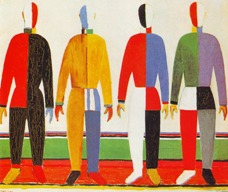 There are growing calls for boycotts of artistic endeavors – including performance art installations, visual artist exhibitions, performing arts groups, erotic movies, exhibitions and art biennials.
There are growing calls for boycotts of artistic endeavors – including performance art installations, visual artist exhibitions, performing arts groups, erotic movies, exhibitions and art biennials.
The boycott, as a public declaration of not attending an ‘offensive’ exhibition, festival or film, has led to cancellations of art events and disturbances at live performances. The result is the censorship of artists, and the shutting down of public access to art and cultural events.
These calls for boycott have been led by all political camps – anti- and pro-Israel, secular and religious – suggesting that the cultural boycott has become a way for all sides to make a political point and defend a cause.
The Manifesto Club strongly supports international collaboration and cultural exchange, and opposes censorship in all forms. We believe that art and artistic exchange has the capacity to transcend political divisions and national borders.
Boycotts are sullen and mean-spirited: a simple act of withdrawal from engagement with a work or with a whole nation of people. Individual autonomy and choice are undermined, and much needed dialogue, debate, disagreement and argument is shut down. Such debate and camaraderie between visiting artists and the public is particularly important in conflict zones.
Artists and citizens are not the mouth-piece or the puppets of government; art is not a political object. We call on UK artists and organizations to allow for open debate – to say no to censorship; no to the shutting down of the right to free expression in art and culture; and no to punishing fellow international artists for the political or military actions taken by nation states.
Please inform the Manifesto Club’s Visiting Artists Campaign (coordinated by Manick Govinda) of any further boycott actions against art and culture.
RECENT BOYCOTTS:
- South African director Brett Bailey’s tableaux vivant performance Exhibit B, a work against the historical enslavement of African and contemporary racist deportations, was reduced to a simplistic ‘boycott the human zoo’ campaign. The protesters emptied the work of its aesthetic and humanistic nuance. The petitioning of the Barbican Centre to ‘withdraw’ the work from the public, on the grounds that it was racist, eventually leading to protesters, with police assistance, shutting down the performance minutes before its London premiere in September 2014.
- There was a call that UK artists should boycott Russia in 2014, on account of President Putin’s draconian law against the promotion of ‘non-traditional relationships to minors’.
- Many Israeli theatre, music and dance companies experienced disturbances at live performances and in some cases, censorship by vociferous boycotters. These include :
– Incubator Theatre’s hip-hop opera, The City was never opened during the Edinburgh Fringe Festival in July 2014;
– Batsheva Dance Company and Habima National Theatre of Israel were jeered at during live performances in the UK in 2012. Both companies have not since visited the UK, as a result of UK venues becoming increasingly wary of cultural boycotts;
– The Israeli Philharmonic was jeered during its last UK performance at the BBC Proms in 2011;
– Many UK artists, writers and musicians are persuaded to not visit or tour Israel, as a way of punishing the Israeli state. Groups encouraging boycotts include Artists for Palestine. Ultimately, it is fellow artists and ordinary people who are deprived of the pleasure and international camaraderie that visiting artists bring to citizens. Artists, musicians and arts professionals who do take part in cultural events in Israel are made to feel as if they have committed an immoral act by boycotters.
– The Sao Paulo Biennial was forced to segregate sponsorship from the Israeli embassy from other sponsorship, after a protest from participating artists.
- Pro-Zionist lobby groups and a petition have forced the cancellation of Israeli-born British jazz musician Gilad Atzmon’s concerts in Manchester, for his stridently anti-Israeli position.
- There is an international boycott of British visual artist Sam Taylor-Johnson’s (formerly Taylor-Wood) film direction of the popular erotic bestseller 50 Shades of Grey, which has garnered over 111,000 signatures protesting against the film on grounds of its BDSM and abusive content. While the distribution power of cinema makes it a difficult medium to censor, the UK premiere was picketed by a handful of protesters in Leicester Square on 13 February 2013, encouraging censorship such as the taking down of the film poster in Welwyn Garden City and merchandise being withdrawn.
- In New York in October 2014, there was a major attempt to shut down classical composer John Adams’ revival of the 1991 opera The Death of Klinghoffer at the Metropolitan Opera. The Met didn’t bow down to protesters’ demands, but the performers had to endure interruptions. In addition, the wider international public was denied the opportunity to see a live Hi-Definition broadcast to 2,000 cinemas around the world which was planned for 15 November 2014; this was axed for fear that the opera would offend the international Jewish community.
- In December 2014, various art activists called for the boycott of the Zabludowicz Collection in London. The Zubludowiczs are philanthropists who support many emerging artists, working in London and internationally; their crime in the eyes of the boycotters is their relationship to arms dealing and Israel.
- There are likely to be protests against and a call to boycott the BP Portrait Award exhibition at the National Portrait Gallery, which runs from 18 June to 20 September 2015, owing to the exhibition’s long-standing sponsorship by the petroleum company BP. This ignores the fact that hundreds of painters have benefited from this open competition that offers a first prize of £30,000 to the winning entry.
- A number of musicians and comedians are boycotting the State of Indiana, after the passage of the Religious Freedom Restoration Act.
Image credit: Malevich, Sportsmen (1928-32)